Blinds are often the most practical and cost-effective solution for providing shade, privacy and insulation. The wide variety of styles and materials also means that they can also fit any style of home. That said, some styles are more suited to certain rooms, so it’s important to consider what the best blinds for your room is.
Thermally treated fabric can help mitigate the sun’s power in conservatories and south-facing rooms. Heavier fabric blinds are a good choice for colder homes where you need to help stop cold coming in from windows and doors. While blackout fabric can help your sleep by dramatically reducing morning sunshine in east-facing rooms.
Let’s take a look at our blind recommendations based on different rooms in your home.
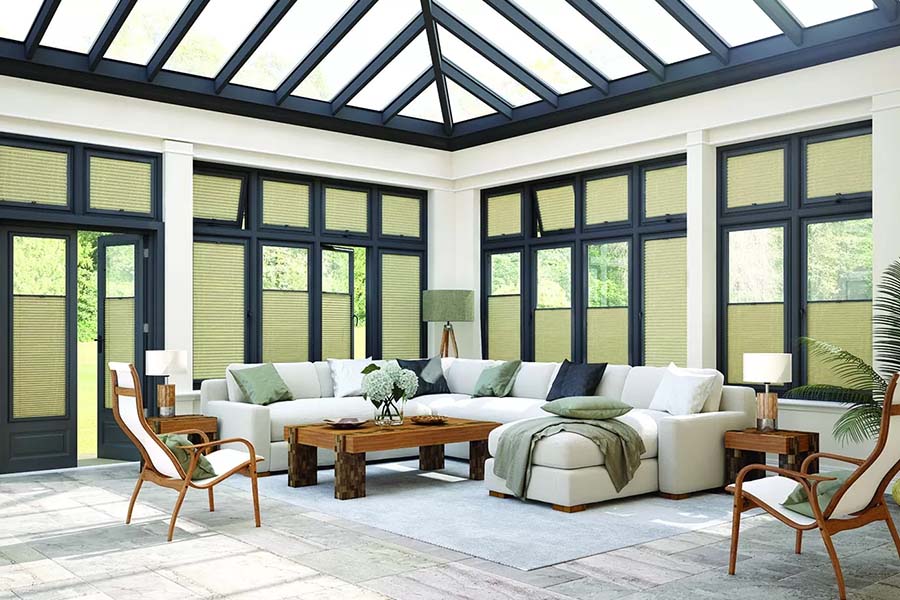
You might think the best blinds for your windows stop at the type and colour you want, but it can be a little more complicated than that. Often the best window blinds depend on the room, its position and what the window looks out on to.
You might know which colour or pattern you want that suits your style, but if your living room faces south and your bedroom faces north, they’ll need different types of blind, material or treatment. Similarly, you will need different types of blind in your bathroom or kitchen to your living room and bedroom.
Whatever the room, we have the window blinds to suit the windows you have.
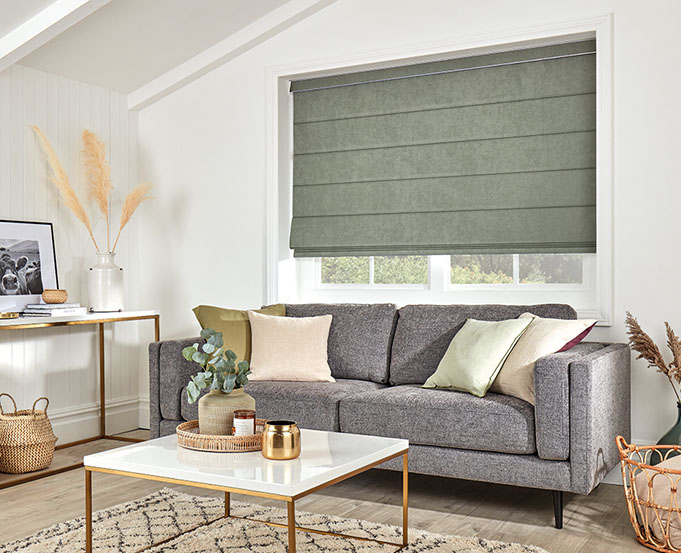
The best blinds for your living room can be about the perfect look or practical functionality - or a combination of both.
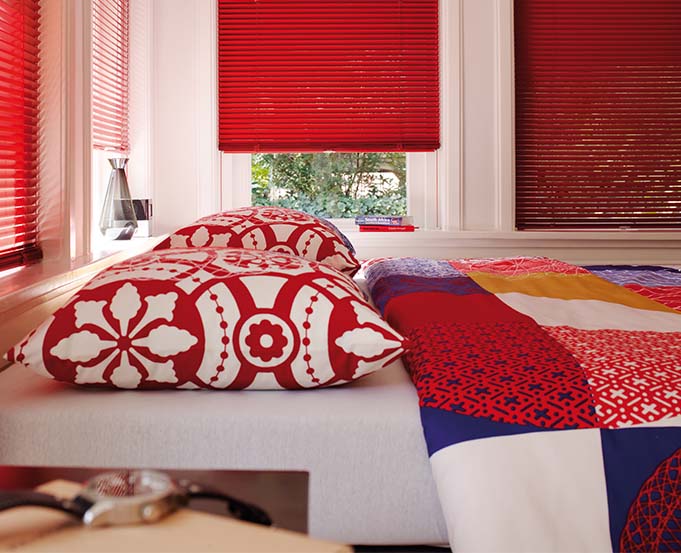
The best blinds for your bedroom should combine strong light exclusion with style options to match your inner sanctum. Privacy is also an important factor, so you may want blinds with multi functionality.
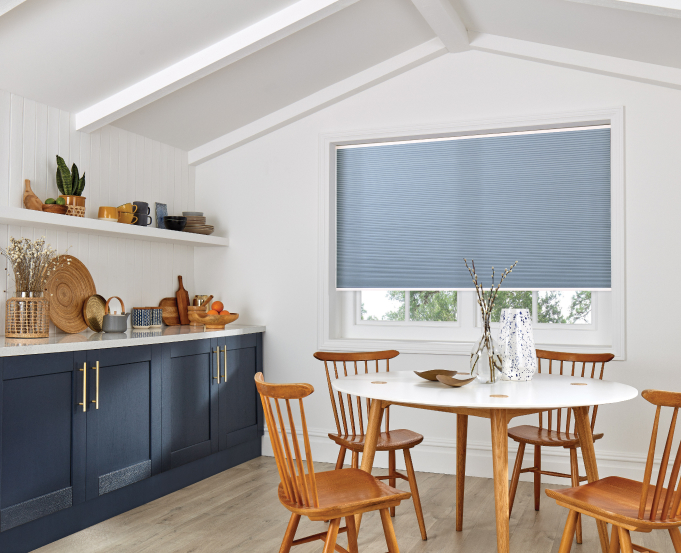
Kitchens are busy places, with cooking, washing, steam and general day-to-day activity, your kitchen blinds will go through a lot. Because of this, the best kitchen blinds are durable. Other key considerations include light control and privacy.
All-round – Venetian blinds are likely still your best bet for combining all three factors. They are durable, easy to maintain and you can easily adjust them for both privacy and controlling how much light comes in.
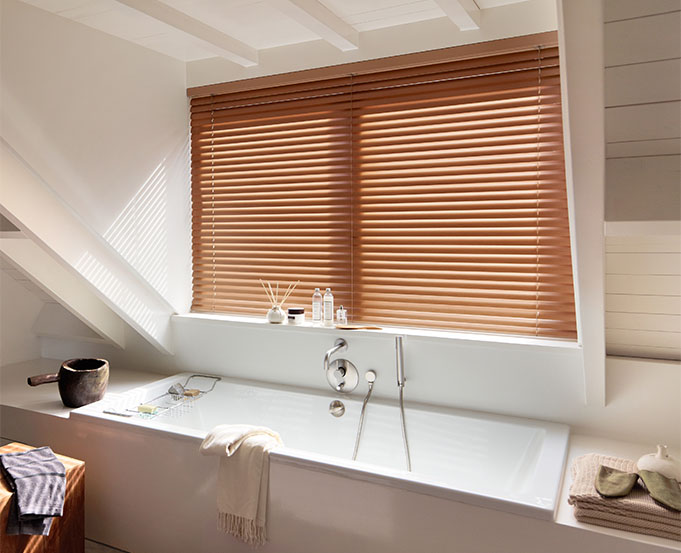
Bathroom blinds need to stand up to high humidity levels, making durable moisture-resistant fabrics and materials important. The best bathroom blinds will also provide high levels of privacy and good light control.
All-round – The best blinds for bathroom windows are fauxwood venetian blinds. They provide flexible light and privacy while being moisture-resistant and easy to maintain. Moisture-resistant roller blinds would also be a good option, but do not offer the same level of flexibility and privacy as venetian blinds.
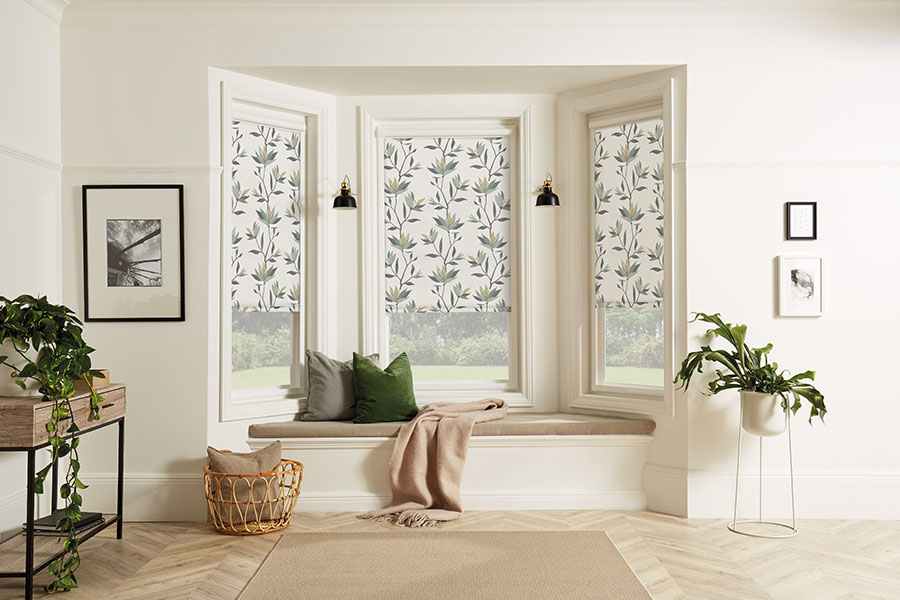
The best blinds for bay windows need to be versatile, as they are often located in rooms where we spend a lot of time. A key concern is insulation, because bay windows are often colder because they have several windows and a lower insulated structure. Other considerations are privacy from the road and good light control.
All-round – Depending on what you most key concern is, Roman blinds or Roller blinds are probably the best blinds for bay windows. They fit neatly into the sections of the bay and have plenty of customisation to help match your style. Roman blinds probably have the edge, as they have thicker fabric options to give you more insulation and keep you cosier in colder months.
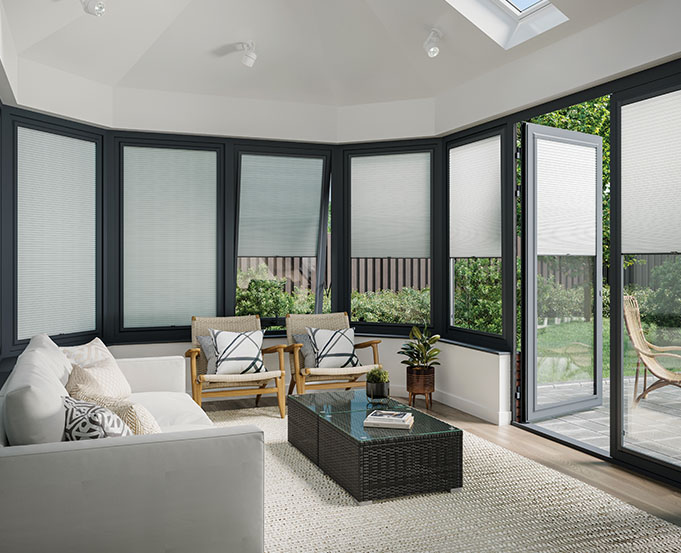
Conservatory blinds control heat and sunshine during the warmer months, helping to keep the space at a comfortable temperature. So both light control and thermal performance are key, but privacy is important too.
All-round – Overall the best blinds for your conservatory are likely to be perfect fit pleated blinds. Pleated blinds have a design that traps heat better in the winter and help block it in the summer. They provide ample privacy while also maintaining good light levels because they diffuse light, rather than blocking it. Being perfect fit means they fit neatly into the frame around each window, and they have a motorisation option too.
The best blinds for doors often depends on what you use the doors for and what kind of doors they are. A standard front door or back door likely doesn’t need blinds in the way a patio or bifold door does. These doors often have more glass and so you are more likely to need blinds here for privacy, helping reduce glare in the summer and creating cosier atmospheres in the evening.
The key considerations for most blinds for doors are privacy, light control and thermal performance. With this in mind, below we take you through some of the options to help you choose the best blinds for doors.
Bifold doors flood a room with light and providing a seamless transition between your home and garden. The best blinds for bifold doors need to cover their large glass panes and also fit in with their unique stylish looks. With so much glass privacy is important, but so is light control.
All-round – If you want blinds that tick all of these boxes, perfect fit pleated blinds are probably best blinds for bifold doors. They softly diffuse light so that you get privacy without losing too much light. Their dual-layer fabric accordion design also helps trap warm air to add insulation in the colder months.
The best blinds for sliding patio doors, like bifolds, depends on what you use the room they are in for. Often they open from well-used rooms like living rooms and conservatories, with large amounts of glass. They need blinds that provide privacy, good light control and fit in with your décor.
All-round – The best blinds for patio doors are probably either venetian or vertical blinds, which give you the control to get as much or as little light and privacy as you want. However, when it comes to style, it depends entirely on the room. Roman blinds add a luxurious, cosy feel with thermal efficiency and great light-blocking, while pleated blinds bring an elegant look with great thermal properties and soft light diffusion.


